#zuccarelli
Explore tagged Tumblr posts
Photo
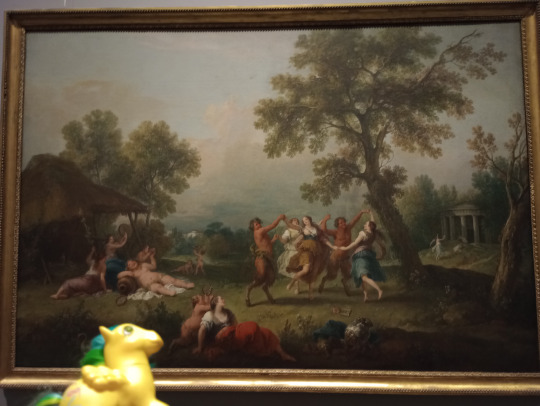

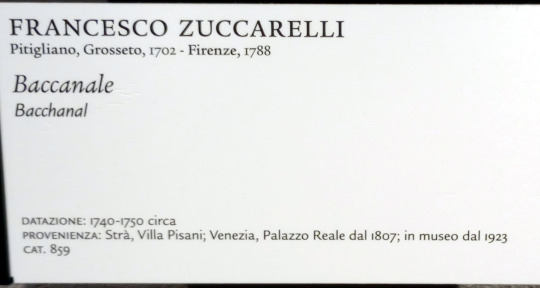
Masquerade is looking around Venice (and the surrounding islands).
In Italy.
Masquerade is in the Gallerie dell’Accademia.
This is photo number 69 of 366.
45 notes
·
View notes
Text

A classical landscape by Francesco Zuccarelli hangs over the fireplace in the dining room at Saltram House, Devon. Robert Adam worked on the house in the late eighteenth century and first fitted out this room as a library. The plaster picture frame and fire surround display an acute balance of proportion and detail.
The Fireplace, 1994
#vintage#interior design#home#vintage interior#architecture#home decor#style#1990s#90s#living room#fireplace#mantel#Saltram House#Devon#lime green#wall color#Robert Adam#classical#Francesco Zuccarelli
208 notes
·
View notes
Text

Francesco Zuccarelli (Italian, 1702-1788)
Veduta di Vicenza
30 notes
·
View notes
Text

Macbeth and the Three Witches by Francesco Zuccarelli
#macbeth#three witches#art#banquo#francesco zuccarelli#shakespeare#william shakespeare#prophecy#scottish#england#scotland#britain#witch#witches#supernatural#landscape#storm#stormy#storms#thunder#lightning#thunderstorm#thunderstorms#night#castle#castles#king#tragedy#sky#clouds
99 notes
·
View notes
Text

Francesco Zuccarelli (Italian, 1702 - 1778), Landscape with the Education of Bacchus, 1744
#18th century#italian art#Francesco Zuccarelli#Bacchus#greek gods#greek myth#greek mythology#landscape#art#art history
9 notes
·
View notes
Text

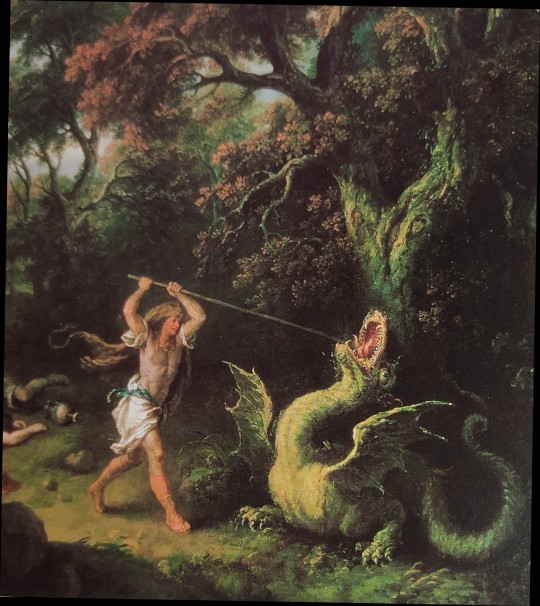
Cadmus Killing the Dragon, 1765 by Francesco Zuccarelli (1702--1788)
1 note
·
View note
Text

Kori Zuccarelli - Fracturing Conformity
0 notes
Text
The recent episode (1x06) reinforced the feeling the painting about Agatha's fireplace is significant somehow. It's a Chekov's gun.
Just as the Teen in Agatha's head kept asking: "Why do you keep looking at that painting?"
And we see 'in real life' Agatha moved closer to the painting and touched it.

Apparently, the painting is called Macbeth Meeting the Witches by Francesco Zuccarelli
A slightly clearer look at the painting:

This painting, specifically, is called "Macbeth Meeting the Witches", not "Macbeth and the Three Witches", which is a slightly different painting from what Agatha owns.
For some reason, Agatha as Agnes is very drawn to this painting where Rio is, in her mind, situated.

It's also interesting that Rio seemed to be 'Detective Agnes's' conscience during this interrogation in Agatha's mind.
During the interrogation scene, in real life, Agatha keeps glancing at the painting whenever she's not speaking to Billy:

Also, Billy is the second person on the same night to imply that at this point of Wanda's Hex spell, Agatha is the only one keeping herself in the Hex.
Rio implied the same thing a few minutes earlier.

As for the question of Rio being there or not, Rio is the Schrodinger's Rio Vidal. Because she is and isn't in the house.
Anyway, Agatha is very much connected to the imagery of the Triple Goddesses and the number 3.
And I just learned today that it's also somehow connected to the moon imagery.

The "Triple Goddess" symbol of the waxing, full, and waning moon, representing the aspects of Maiden, Mother, and Crone (source: Wikipedia)
This finally explains why there's so much moon imagery within the Road Trials.
I think we will get clarification on what the painting means in episode 8--foreshadowing paid off.
And answer, finally, why the painting is so important to Agatha. I think, if I'm right, the painting will be a key part of Agatha Bad Wolfing herself an escape route out of the Hex spell.
Except she wouldn't take into account that Agatha herself, and again, would be the biggest detriment to ending the spell.
43 notes
·
View notes
Text
I can't remember where I had seen it but there was a quote about how the first episode of Agatha is important and contains a lot of hints so, here's a compilation of things I find odd/interesting/maybe of some note?
"You punched a suspect." "...then the chief calls and tells me hibernation is over." - we now know (so far) that Agatha was still under Wanda's spell but has she been violent to the people of Westview? The use of hibernation is interesting to me; almost like she knows she's going to snap out from the spell she's been under or some other hold of power over her.
Agatha bringing up Candy Crush and then Herb telling Agatha the victim was crushed.
"She is dead though, isn't she, Herb?" "Oh she's really most sincerely dead." "You never know." WINKS (there's already a bunch of posts on here about when Agatha is shown to wink in the show, mostly when she detects a lie/half truth/inkling of deception).
"You don't seem like yourself." "Oh yeah? And who is that exactly?"

Very possibly a picture of Nick; so far he's been tied to rabbit symbolism.
"Fancy dirt always attracts attention of the Feds." (If Rio is confirmed to be Death, that's just another nod to her - especially when she comes out of the ground in the other episode).
"What are you doing here?" "My job." "...if you want to be in control, you can be." (Once again if Rio is death; she's come for death. Is this a push for Agatha to 'claw your way out' of possibly dying? Avoiding death?).
"The secrets buried beneath it. That's where the answers lie." (goes hand in hand with the trailer/quote we get from Rio saying 'the bodies are really piling up').


This is the second time I've found dates relating somehow specifically to the Salem Witch Trials (the other being Agnes and Ralph's anniversary date in Wandavision)
Rio making a comment about how she thought Agatha would 'turn into a pumpkin that far'. Are there limits to her being bound by Wanda's magic? We know that the Hex only contained Westview in Wandavision with a strict border - does this border still exist for Agatha or is she allowed to move 'more freely' now than she was before?
"I was on a road this morning, it lead to something pretty awful."
The clock on the wall in the interrogation room with Teen never changes.

This painting, created during Zuccarelli's stay in England, represents the decisive moment when Macbeth, together with Banquo, meets the three witches who announce that he will be King.
"There are two Jane Doe's in this case." (This has literally been eating at my brain since I saw the first episode. Does this go back to the hibernation comment of Agatha coming out of the spell or...).
"You can't kill me." "You can't kill me, it's not allowed."
#Marvel#Agatha All Along#Agatha All Along spoilers#Agatha spoilers#Agatha Harkness#Seekest Thou The Road
23 notes
·
View notes
Text
The Dionysos gallery (2)
Next on our travel down the Dionysos museum, we have an entire section dedicated to the Bacchanals in painting - with a few analysis here and there.
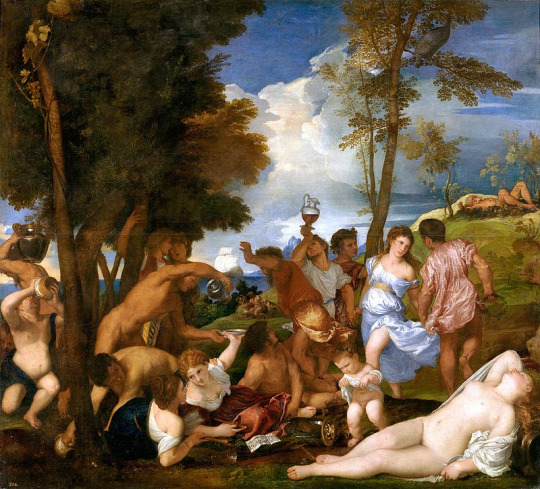
Titien's The Bacchanal of the Andrians
The Museum's website adds that this depicts the legend of how Dionysos gifted the inhabitants of the island of Andros with a river of wine. It was one of the numerous "miracles" attributed to the god by folk-belief when he became the god of the grapevine. Already in his "Bacchants" Euripides had told how, by touching a stone with his thyrsus he created a stream of fresh water, and where his narthex had touched the ground a stream of wine flowed ; and those that sought milk only had to scratch the ground near the god to see it flow, and from the god's thyrsus honey dropped...
In Ionia, on the island of Teos, a similar legend existed: it was said, by Diodor of Sicily and Pline the Elder, that at a fixed date in a calendar a stream of wine regularly flowed. At Elis, on the eve of the god's feast-day, empty jars and jugs were sealed and left alone in Dionysos' temple: by the morning, when they were opened, they were filled to the brim with wine.
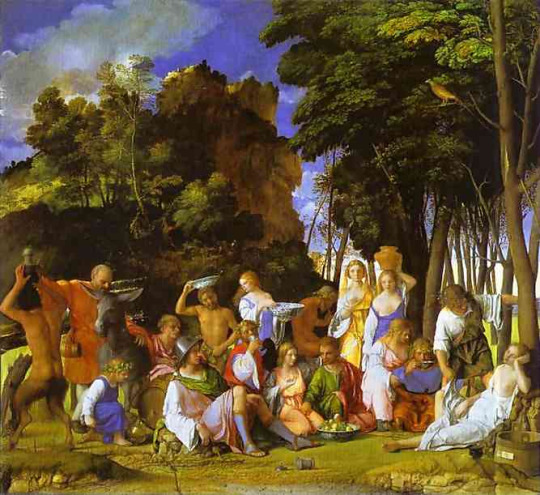
Giovanni Bellini and Titien's The Feast of the Gods
The museum adds this mention: the painting is a depiction of the legend of Lotis collected by Ovid. One night, as the gods had a feast, the nymph Lotis fell asleep. Priapus got close to her, and with his famous ithyphallic nature, he decided to rape her. But as he was about to touch her body, the donkey of Silenus started making loud noises - waking up everybody, including Lotis. Lotis fled from Priapus' embrace, and all the gods laughed and mocked the god.
This painting was most notably the favorite painting of Fernand Botero.

Dosso Dossi's Bacchanal with a drunk Silenus and Bacchants frolicking around grapevine
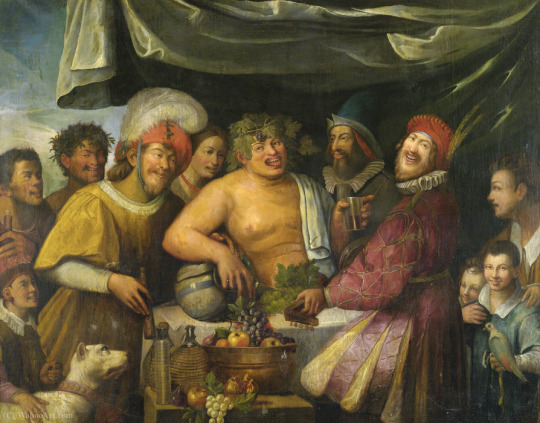
Niccolo Frangipane's Bacchanal

Nicolas Poussin's Bacchanal
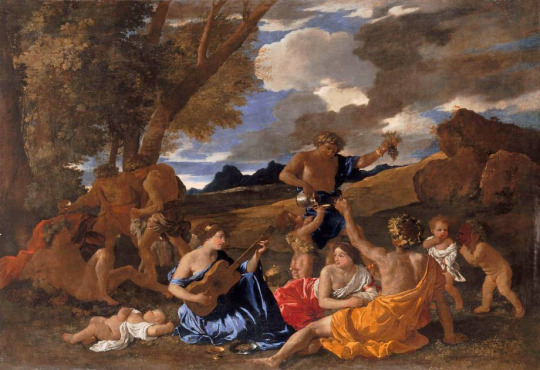
Nicolas Poussin's Bacchanal with a guitar player ; also called "Great Bacchanal"
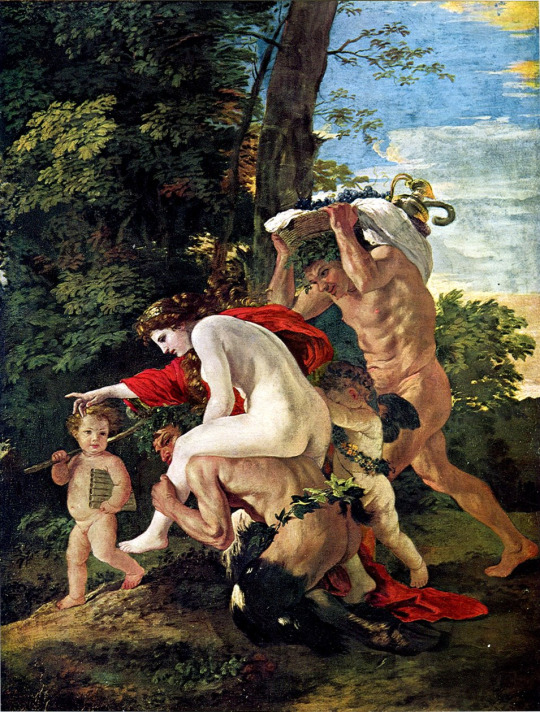
Nicolas Poussin's Bacchic Scene

Pier Francesco Mola's Bacchus supervising the Satyrs pressing wine
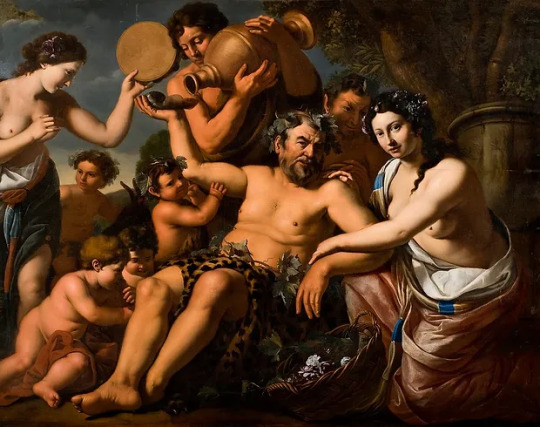
Gerrit van Bronckhorst's Bacchanal with Silenus
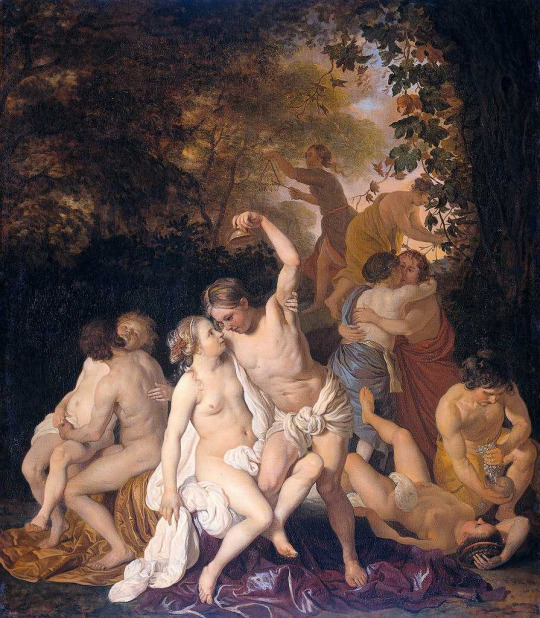
Jacob van Loo's Scene with Bacchants

Michaelina Wautier's Bacchanal
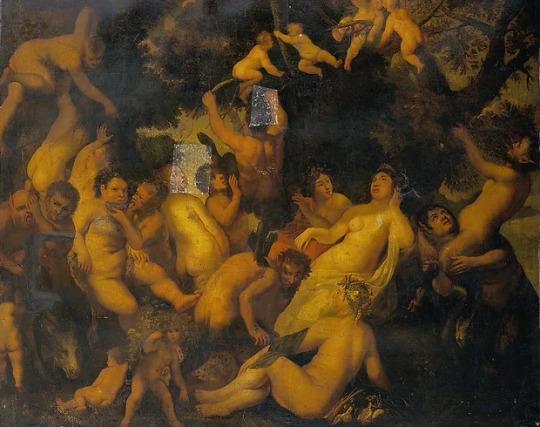
Jacques Jordaens' Bacchanal
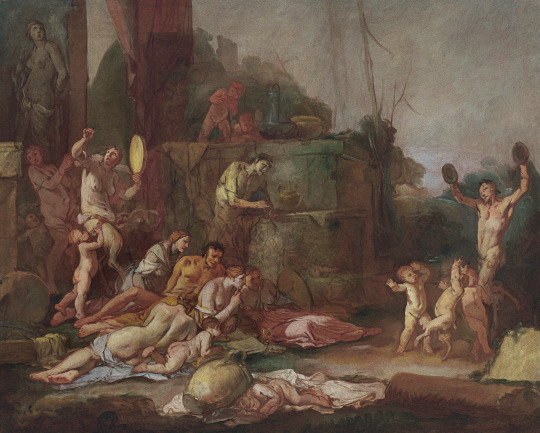
Giulio Carpioni's Bacchanal
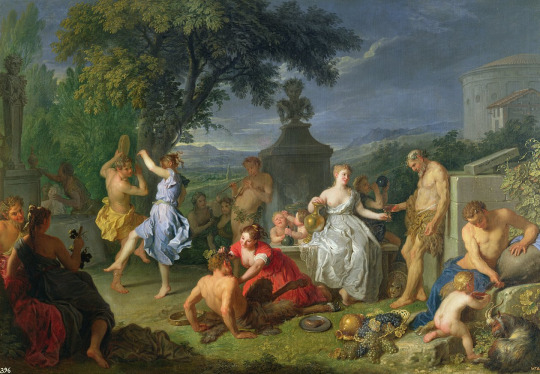
Michel-Ange Houasse's Bacchanal
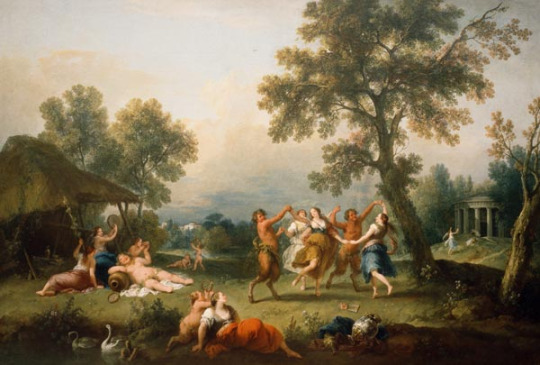
Francesco Zuccarelli's Bacchanal
#dionysos#the art of the myth#dionysus#bacchanal#the dionysos gallery#silenus#bacchants#greek mythology#painting#art
52 notes
·
View notes
Text

Francesco Zuccarelli (Italian, 1702-1788)
Paesaggio con fonte, figure e animali
25 notes
·
View notes
Text
DOLTON - A south suburban politician under fire for the way she spends tax dollars has come up with a unique strategy to discourage people from running against her.
Tiffany Henyard is proposing a nearly 90% cut in her position's salary—but only if she's not filling it. It's just the latest controversy surrounding Henyard, who serves as both Thornton Township Supervisor and the Mayor of Dolton.
Thornton Township Trustee Chris Gonzalez was just sitting down at the start of the township's board meeting two weeks ago when he was handed a seven-page proposed ordinance requiring an immediate vote. Gonzalez said he had no time to read the proposed ordinance.
"And then we get into the meeting pretty quick," he said.
Leading that meeting was Supervisor Henyard, who was appointed to the position last year after the death of longtime supervisor Frank Zuccarelli. Henyard is certainly charismatic, often bringing a DJ to board meetings to help her make a point. But she's also controversial, spending tens of thousands of taxpayer dollars to promote herself with billboards and purchasing first-class tickets for out-of-town trips. She's also used public employees and vehicles to promote her personal charity and taken Dolton police officers off the street to create a personal security detail that's resulted in thousands of hours of overtime.
But back to that ordinance—which passed without Gonzalez's support.
"They're like, I can't believe it. How can someone do that?" said Gonzalez.
What the ordinance does is ensure that Henyard continues to receive her $224,000 a year salary as township supervisor. But if a non-incumbent becomes supervisor—in other words, if someone challenges Henyard and beats her—the salary for that position drops to just $25,000 a year, a pay cut of nearly 90%.
Trustee Gonzalez said it's a political poison pill to scare off competition.
"(It) discourages people from running is the first thing that comes to mind," he said.
But perhaps the bigger question is—is it legal?
"No. It's so illegal in so many ways. It violates so many tenets of the law," said municipal attorney Burt Odelson, who represents Henyard's political opposition in Dolton.
Odelson said under the concept of equal protection of the law, the salaries of elected officials have to be identity-blind, which means they don't change based on the person holding the job.
"It may be the worst attempt to try to dissuade people from running that I've ever seen. And that's a long time," said Odelson.
Henyard isn't facing re-election at the township until 2025. But already potential competitors are circling despite the drastically lower salary, including Illinois State Senator Napoleon Harris. But if Henyard is re-elected, she'll continue making the $224,000, even if she seems to believe the job is worth a fraction of that.
The ordinance also lowers the salaries of other election positions in the township—but again, only if someone new wins the job. It will likely stand as a curiosity, the only elected positions with two different salaries, until someone inevitably files a lawsuit.
A spokesperson for Thornton Township declined to comment.
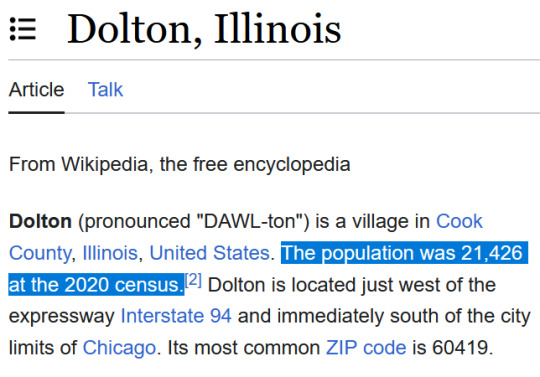

How is a town with that low of a population affording 1/4 million salary let alone on top of the other stuff she's spent.
10 notes
·
View notes
Text

Francesco Zuccarelli, 1702-1788
Diana and Callisto, with Nymphs resting from the hunt, n/d, oil on canvas, 62.2x50 cm
Private Collection (Sotheby's)
17 notes
·
View notes
Text

"Landscape with the Education of Bacchus" by Francesco Zuccarelli
From what I've read so far on Hyrsam, the Archfey, he seems to be a mix between Pan and Dionysus (if we're sticking strictly to classical mythology). So I am assuming his retinue is very, very, very, very much like the Bacchante/Maenads which is such a WIN in terms of glamor. Here are some paintings for inspiration for the Feywild's favorite Prince of Fools.
More paintings below the cut!
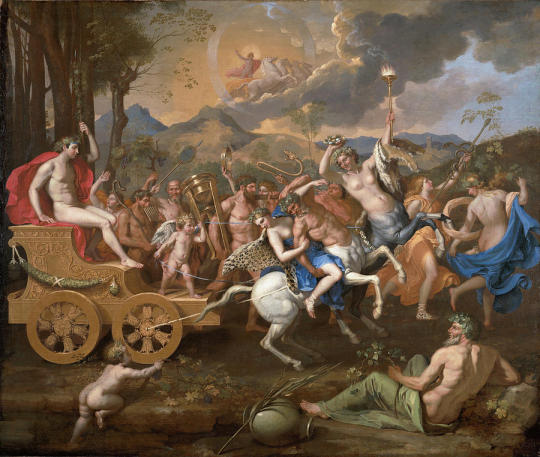
"The Triumph of Bacchus" by Nicolas Poissin
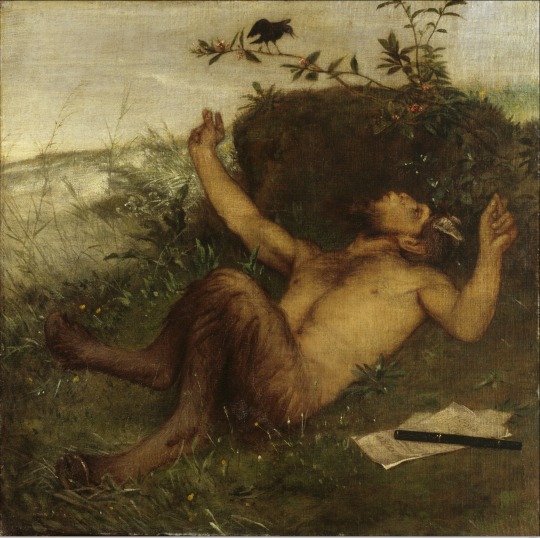
"Faun einer Amsel zupfeifend" by Arnold Böcklin

"Faun, die Syrinx blasend" by Arnold Böcklin

"Pan im Schlif" by Arnold Böcklin
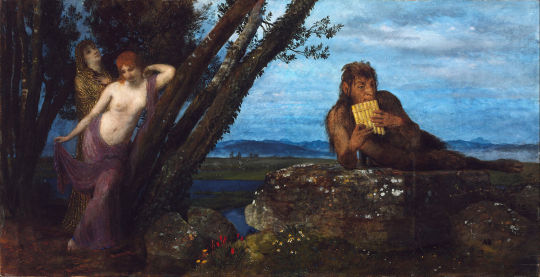
"Spring Evening" by Arnold Böcklin
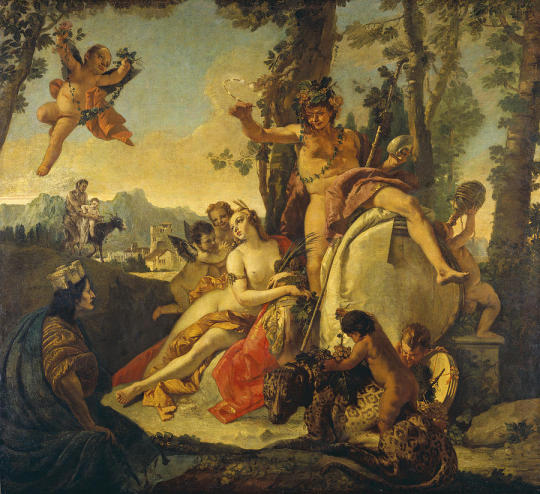
"Bacchus and Ariadne #2" by Giovanni Battista Tiepolo

"Cupid and Pan" by Agostino Carracci

"Silene and Dionysus" attributed to the French School of the 18th century
3 notes
·
View notes

